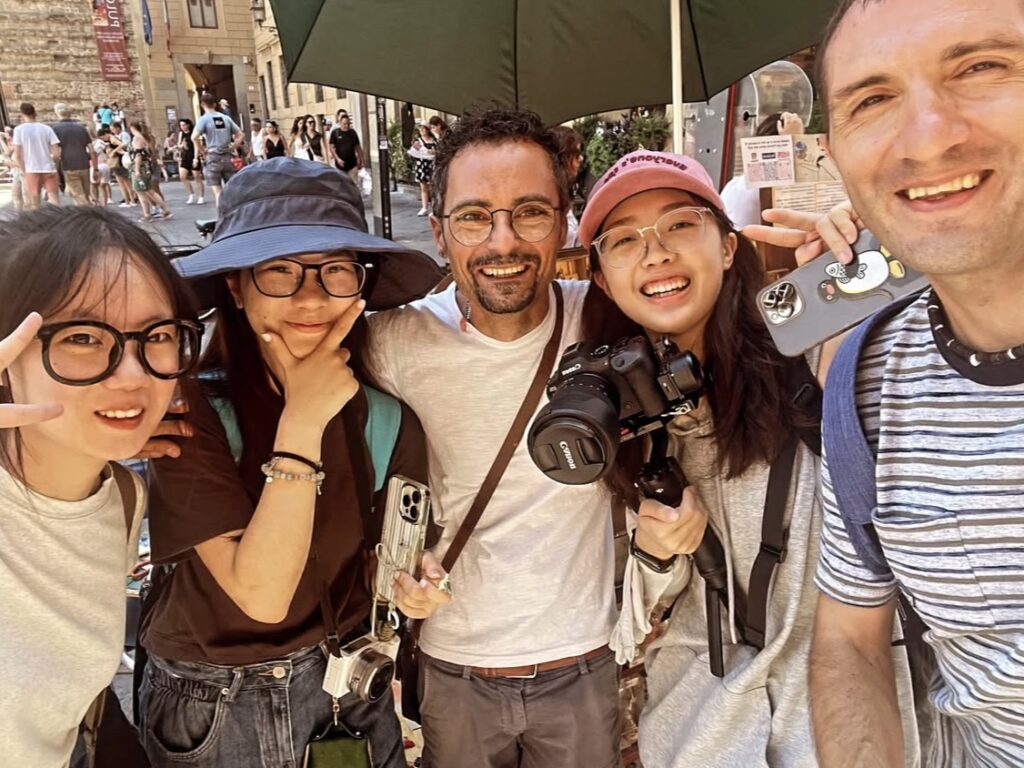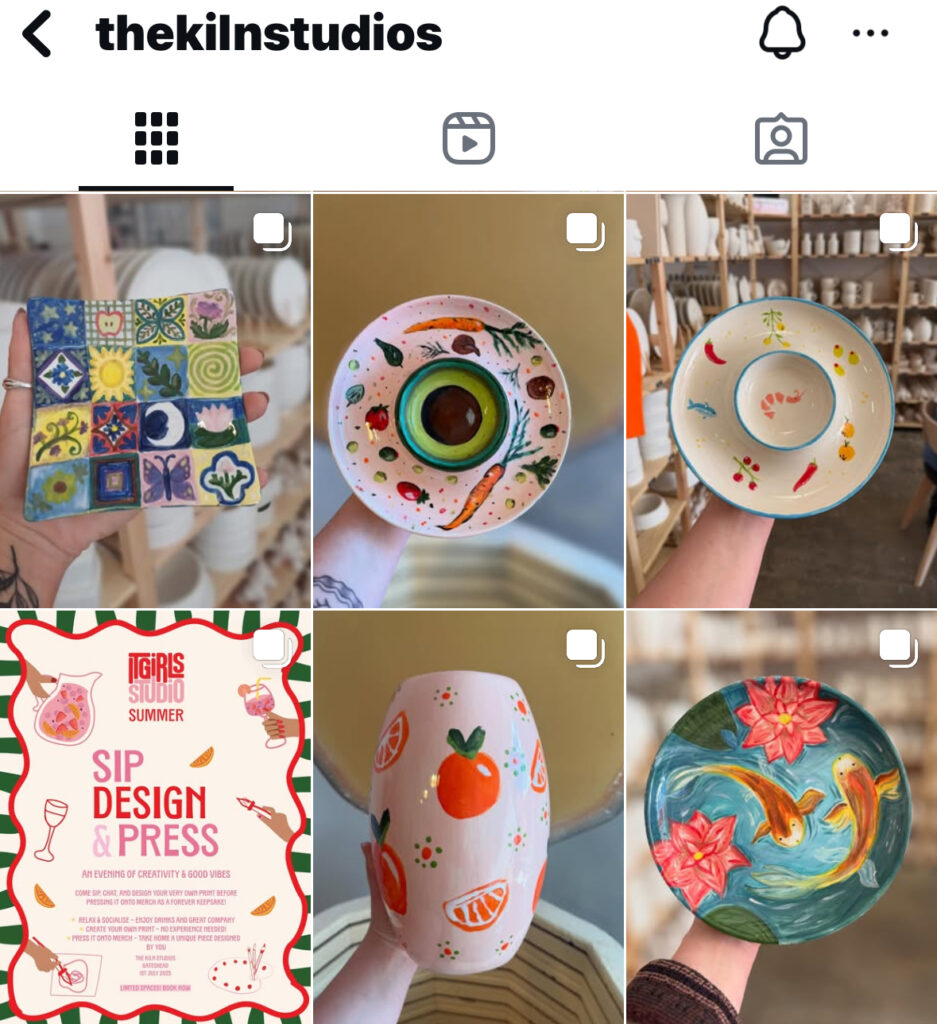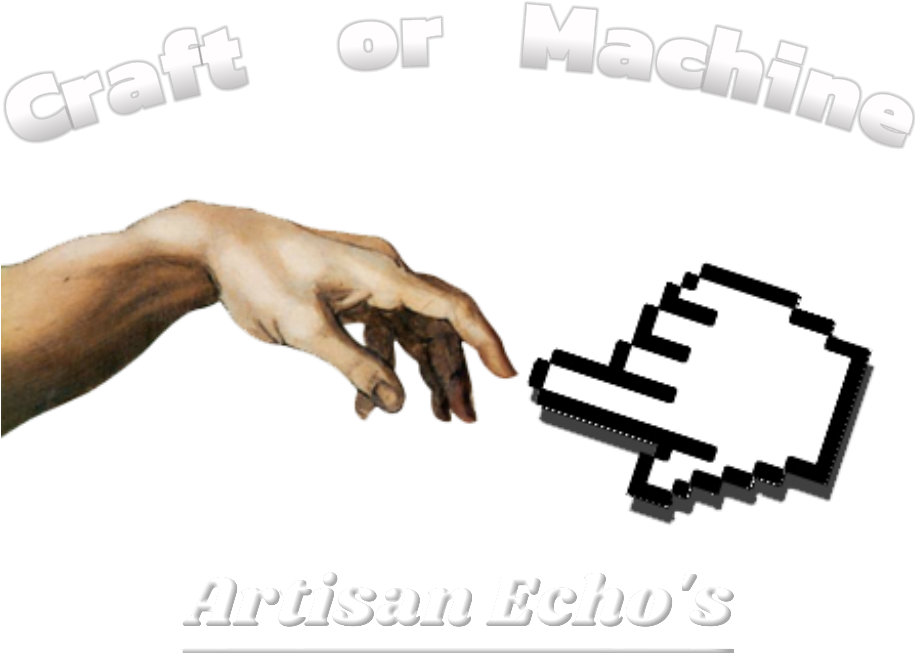Social media: a new stage for traditional crafts
Antonio also mentioned that despite the exposure brought by social media, maintaining the quality of traditional craftsmanship remains a core challenge.

“New customers find me through Instagram every day, but I will stick to the rhythm of handmade production and will not sacrifice details for mass production.”
This balance is a common issue faced by contemporary craftsmen – how to expand influence in the digital age without being kidnapped by online marketing.
When asked what kind of business thinking should craftsmen have to cope with the competition of machine manufacturing, Antonio’s answer is quite philosophical:
“I don’t think handicrafts and machine manufacturing are in a competitive relationship. Just like looking at a sea, the image on the postcard and the experience in reality are both beautiful, but the latter has more emotion, presence and authenticity. Perhaps it is precisely because Italy is one of the industrialized countries that people can more easily appreciate the difference between handmade and industrial products.”

Ceramic experience: selling emotions and time
The Kiln Studios in Newcastle is a shop that focuses on ceramic experience. Unlike cheap tableware mass-produced in factories, their handmade products are more expensive: coasters and tiles are priced at £6 to £15, cups are priced at £16 to £22, plates are priced at £16 to £32, and bowls are priced at £19 to £28.

In an anonymous interview, when asked about the advantages of handmade pottery, a manager representative from The Kiln Studio revealed: “Machine-made tableware pursues efficiency and profit, while we provide a unique experience. Each piece carries the creator’s emotions and stories, which cannot be replicated by industrial production. Our customers buy not only objects, but also a warm time.”

(Credit by Yuting Guo)
Through observations on the day, The Kiln Studios’ customers are mainly young people and students, who regard pottery painting as a date or social activity.
Family customers also account for a certain proportion, and parents bring their children to enjoy parent-child interaction.

(Credit by Yuting Guo)
“We don’t only sell goods, but emotional value.” The manager added.
Social media also plays an important role in the operation of The Kiln Studios. “Instagram is our main marketing channel, and we also operate a Tiktok account,” the manager said. “Many customers discover us through social platforms. It not only helps us expand our influence, but also makes more people aware of the unique charm of handicrafts.”
The platform algorithm prefers visual content, which just fits the display needs of pottery. The studio publishes photos of customers’ creative process and finished products every week. This real sharing often arouses the interest of local users.

(Credit:Screenshot of The Kiln Studios’ Instagram homepage )
“Some people even bring screenshots of social media to find the same design,” the employee said with a smile, “but we will encourage them to create their own version.”
Future:Persistence and innovation coexist
Whether it is Antonio’s puppet art or The Kiln Studios’ pottery experience, they have proved one point: in the machine age, the value of handicrafts lies not only in the product itself, but also in the emotions, stories and experiences behind it.
According to the Craft Council’s 2025 survey report,
Craft Council Makers Survey Report
“Although digital platforms play an important role in sales and promotion, people still strongly prefer offline sales of handicrafts: two-thirds (66.2%) of sales come from physical channels,while online sales account for only 16.6%.”

(Credit: Craft Council Makers Survey)
But it is undeniable that the rise of social media has provided a new living space for traditional crafts, and the innovation of business models has allowed craftsmen to find a way to compete with industrialization.
The handicraft industry needs more attention and support!
Only by adhering to the essence while embracing change can traditional crafts be reborn in the machine age.
This website is produced by journalism students. The views expressed on the site are not that of Newcastle University. They are the personal views of the student editors and contributors to this website. Seek professional advice for any health-related matter. Every effort is made to ensure that information contained on this website is accurate and up-to-date. However, information is subject to change and we can not accept liability for the accuracy of all the information presented at any given time. We do occasionally provide links from our website to information from third parties. We accept no responsibility for information obtained through such links.

Leave a Reply